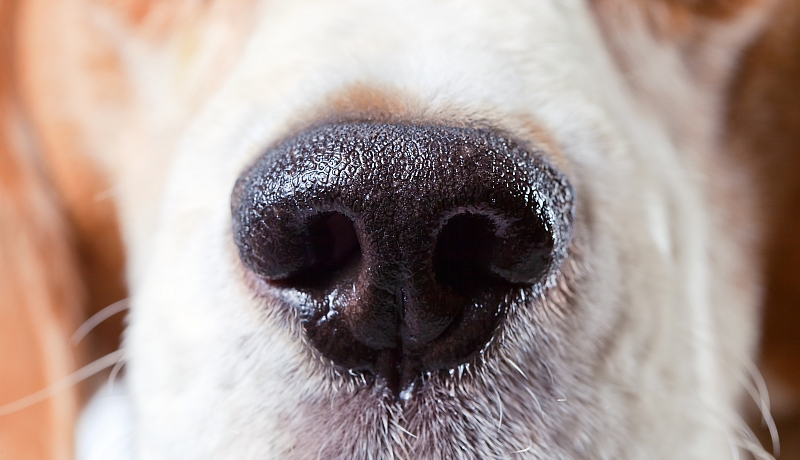There are two types of nasal problems that can sometimes be misdiagnosed by pet owners. The two types of infection are rhinitis and sinusitis. Rhinitis is the inflammation of the nasal tissue, while sinusitis refers to the inflammation of the nasal passage. Both conditions cause the discharge of mucus, so rhinitis can be mistaken for a sinus infection.
Symptoms of Rhinitis & Sinusitis
There are a variety of symptoms for both rhinitis and sinusitis, and they greatly overlap. That is why it takes a trained clinician to get a proper diagnosis.
Sneezing & Nasal Discharge: Sneezing and discharge are the most obvious symptoms. Mucus discharge can be either from the nose or eyes (or both), and on there may also be some nasal bleeding in rare instances.
Stuffy Nose & Labored Breathing: Since the nasal passages will have some obstruction, dogs, like humans, will experience a stuffy nose, and there may also be labored breathing when the dog tries to compensate for the lack of airflow.
Lethargy & Loss of Appetite: Dogs can also become less energetic and lose their appetite if they are experiencing sinusitis or rhinitis.
Causes of Rhinitis & Sinusitis in Dogs
As with human sinus issues, dogs experience sinus problems due to a variety of factors; however, since they are constantly using their noses to poke around, they are more suitable to getting things stuck in them.
- Parasites
- Fungal infection
- Tooth abscess
- Bacterial or viral infection
- Excessive tissue growth (Neoplasia)
- Foreign objects within the nose or nasal cavity
- Nasal polyps
Diagnosis of Rhinitis & Sinusitis in Dogs
It is best to leave final diagnosis and treatment to a veterinarian, but it is important to be able to read the signs of nasal problem in order to know when to seek out the advice of a veterinarian.
A common cold or other simple health event may have the same symptoms, so if you notice any of the above mentioned symptoms, give a few days to see how they progress and if there is no improvement, or worse, the conditions deteriorate, then take your pooch to the veterinarian for a proper diagnosis.
Treatments & Preventative Care
Treatment of sinusitis or rhinitis generally involves antibiotics, or anti-fungal medication if the veterinarian suspects a fungal infection. It is very important that any medication that is prescribed, be given its full dose, otherwise, it may not completely cure the condition.
Generally, a healthy diet, keeping the dog away from cold damp weather, and plenty of exercise are enough to keep your dog’s sinuses healthy.

